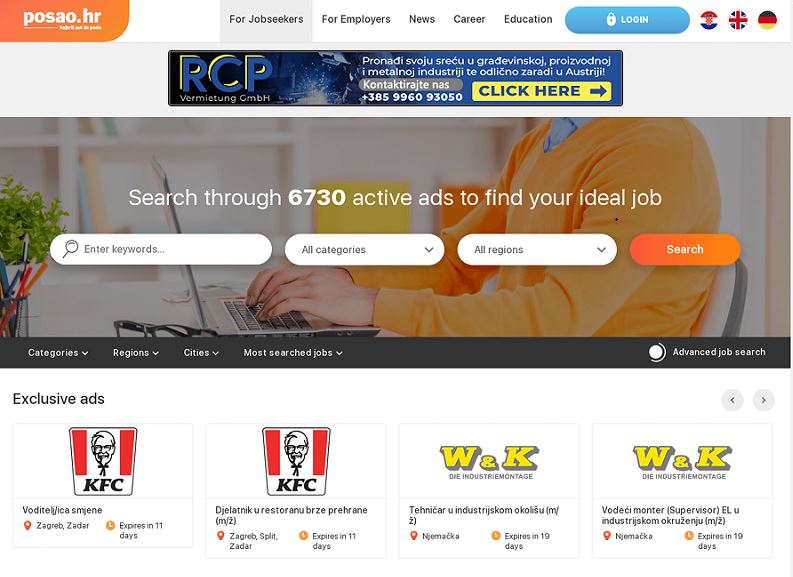Tree of Life Land Art Appears in Baranja for International Day of Peace
September 25, 2022 - The International Day of Peace is celebrated on September 21 every year; and was established by the General Assembly of the United Nations in 1981, and by the United Nations Resolution from 2001, it was designated as a day of non-violence and cessation of hostilities at the global level. One of the symbols of peace is the tree of life.
As SiB writes, more than 40 years have passed since the agreement was founded on the importance of strengthening the ideal of peace among all nations; however, looking back on this not-so-short time and the tragic events currently taking place in the heart of Europe provides food for thought.
"I think we can all ask ourselves how this is possible and why this is happening. But we will not get the answers to these questions from anyone. The International Day of Peace allows all nations, organisations, and individuals to spread the message of peace together through their actions. We believe that individuals and small groups can initiate even serious changes because the real strength of a person is manifested in their actions", they say in the association Dor Project.
Why did they choose the symbol of the Tree of Life? The tree of life is an ancient symbol and can be found in every civilisation, from the Mayans to the Celts, appearing in Buddhism and Norse mythology to Christianity.
The Tree of Life has always meant an unbreakable and perfect connection between Heaven and Earth. It is a symbol of nature, strength, wisdom, and eternal life. The tree of life is also a symbol of rebirth, as trees lose their leaves in winter and appear dead, but this represents the beginning of new life. The motif can also symbolize growth, strength, and uniqueness. Trees are among the longest-lived organisms on Earth, with some species living up to 5,000 years.
The sculpture they made extends over approximately 200 m2 in one location in Batina in Baranja.
For more, make sure to check out our dedicated Lifestyle section.
Big Plans: HRK 452m Bridge to Connect Pašman Island to Mainland
September 25, 2022 - Zadar County has included the project of connecting the island of Pašman to the mainland in the spatial plan as one of their priorities. The will is there, but it is not yet known how and from where this project would be financed, Hina was told by the Ministry of the Sea, Transport, and Infrastructure.
As reported by Poslovni, the ministry points out that for the project of connecting the island of Pašman to the mainland, a feasibility study with a cost-benefit analysis was prepared in 2021 for the project "Bridge to mainland - island of Pašman with access roads to the bridge." Based on the demand analysis of the traffic model, the main goal of the study was to select the best option for connecting the island of Pašman and the mainland.
According to the ministry, the study evaluated building a beam bridge as the best option, consisting of two parts, the first of which would go from Pašman to the islet of Ričul, and from Ričul to the mainland. The estimated value of the project is almost HRK 452 million.
On the mainland side, the bridge should be connected by state road D8 with the future bypass Zadar - Pakoštane, and the route exits to the very bank of the Pašman channel at the position of cape Tukljača.
From the mainland, the planned route goes to the islet of Ričul, about 400 meters from the coast, and continues towards Pašman, crossing the Pašman channel in a length of about 1400 meters. On the island of Pašman, the route continues, via the junction, to the state road D110, thus connecting the bridge with the main road of the islands of Pašman and Ugljan. The bridge's total length would be 2203 and a half meters, and the construction, according to the projections, would last about three years.
The recently opened Pelješac Bridge is slightly more than 2,400 meters long. The project's total value is estimated at 420 million euros, including the construction of the bridge, access roads, and the Ston bypass.
"The fact is that Zadar County has included the mentioned project in the spatial plan as one of the priorities and that the preparation of the documentation has started; however, we would like to note that the mentioned pre-feasibility study needs to be elaborated in more detail, especially concerning the preparation of technical documentation, i.e., more detailed elaboration of investment and operational costs," said the Ministry of the Sea, Transport and Infrastructure. They also point out that the future source of financing should be determined for the chosen option, given that it is not eligible for co-financing from EU funds, so in this context, they cannot say anything more at the moment.
By the way, the Pašman - mainland bridge, for which the Municipality of Pašman received the support of the Ministry of the Sea, Transport and Infrastructure, is one of the most important projects for the island of Pašman, but also for Ugljan, which is connected to Pašman by a smaller bridge. The Ministry of Transport financed the pre-feasibility study with HRK 700,000, prepared by the international company Ernst & Young Consulting.
Interestingly, representatives of the Chinese company China Road and Bridge Corporation, which built the Pelješki bridge within the given deadline, once visited the municipality of Pašman to learn about the possibilities of building a bridge that would connect Pašman to the mainland. The representatives of the Chinese company said then that the bridge could be completed relatively quickly with a professional and thoughtful project. It is also not unimportant that the rocky bottom and suitable depth of about 13 meters on average would make this bridge much cheaper than the Pelješac one.
If it is built, the bridge could stop the depopulation of the two islands, and the price of land would increase, but some residents fear that the scenario of the rebuilt Vir could happen, where the bridge did not bring much good in terms of tourism.
The municipality of Pašman has embarked on a project to build the Pašman - mainland bridge, which for all islanders means an increase in the quality of life through a better connection with the mainland and a significant positive impact on the economy of the entire municipality, said the former mayor of the municipality of Pašman, Krešimir Ćosić, who believes that this project will be successful. For the municipality of Pašman, it is a strategic project, the realisation of which would provide even better opportunities for residents to stay in their hometowns. Ćosić recently said that only the islands connected to the mainland have an increase in population and that the construction of a permanent link would lead to new employment and lower living costs on the island.
Therefore, the Pašman bridge would connect the island of Ugljan with the mainland since Ugljan and Pašman, which together have about 8,000 residents, are already connected by the mentioned bridge in Ždrelac. There is even a detailed bridge construction project, and complete technical documentation made twenty years ago at the Faculty of Civil Engineering in Zagreb.
The mayor of the municipality of Kukljica, one of the most developed tourist towns in Ugljan, Marin Boško, points out that in his town, there are more people in favour of the construction of the bridge than against it. "There are more pros for that construction than cons," said Boško for Hina. He points out that the prices of land and real estate would rise, and depopulation would probably stop in the long term.
As the main problem of the eventual construction of the Pašman Bridge, he points out the infrastructure that would not be able to handle significantly more tourists on the islands. "Infrastructure would have to be strengthened on both islands - both on Pašman and Ugljan, and by that, I mean water infrastructure, sewage, better access roads," said Boško, adding that the Pašman bridge would bring a lot of good, not only to tourism, which the bridge would further develop. "If we had a bridge, we could reach the mainland at any time, emergencies would not depend on ferries, and more people from the island could work on the mainland and travel more easily every day," concluded Boško.
For more, make sure to check out our dedicated Lifestyle section.
Medieval Knight Tournament Returning to Jankovac Forest Park
September 25, 2022 - After three years, we are bringing good news for all fans of one of the most visited events in Slavonia – the Medieval Knight Tournament! It is returning in all its glory to the Jankovac Forest Park on the slopes of the Papuk mountain. Is there anything more relaxing than crisp air, crunchy leaves, and battles between knights in metal armour?
As reported by SiB, over ten knight associations will stage an authentic medieval atmosphere on the weekend of October 1st and 2nd (Saturday and Sunday) and provide content that children and adults will find equally interesting and entertaining.
The prices of tickets for visitors will be HRK 30/EUR 3.98 for adults and HRK 20/EUR 2.65 for children. Transportation will be organised in buses departing from information points in Slatinski Drenovac and at the Veterans' monument located on the pass between Velika and Jankovac. All personal vehicles will have to be left there, given that a very limited number of vehicles can be parked at the visitor parking premises of the Jankovac Forest Park itself.
The organisers of the tournament this year include the Papuk Nature Park, the Municipality of Čačinci, and the Order of Knights of Ružica Grad from Orahovica.
"I am glad that after two years, we can once again organise this event that gathers several thousand people in Jankovac, and this is a wonderful promotion of the municipality, the Park, and our region, and the only thing left that we can still wish for is good weather. Thank you to everyone who has worked hard to prepare this historical story, because, without these people, none of this would be possible," said Alen Jurenac, director of the Jankovac Forest Park.
The medieval knight's tournament is the most beautiful introduction to autumn, which is the most beautiful season on the slopes of Papuk.
For more, make sure to check out our dedicated Travel section.
Looking for My Dad, a 1967 Hotel Bellevue Dubrovnik Waiter
September 24, 2022 - Do we have anyone in Dubrovnik, especially Hotel Bellevue Dubrovnik, with a good memory who can help a Dutchman find his father?
The TCN inbox a colourful and diverse place, and we get many requests for help, not all of which we can address due to lack of resources. But let's see if the wider TCN community in Dubrovnik can help this reader from Holland, who is hoping somebody with a good memory may be able to help him find his Croatian father, who was working as a waiter at Hotel Bellevue Dubrovnik in 1966.
Hi Paul,
I saw your articles in Total Croatia News about Croatian Returnee Reflections. With much imagination, you can say I’m a Croatian Returnee, but that is just a very small part of the story.
I also have no idea if the story I‘m gonna tell is something for you because it needs time and old-fashioned journalistic investigation.
In a nutshell: In 1966 and 1967, my mother (Dutch) has been on holiday in Dubrovnik. The first year she went to Hotel Bellevue. The next year she went again (different hotel) but met the waiter from hotel Bellevue. They dated during her holiday and 1 + 1 became 3 after 9 months. She tried to reach my father by sending a letter for him to the hotel but never got a response. So it’s unclear if he ever got her message and know about my existence.
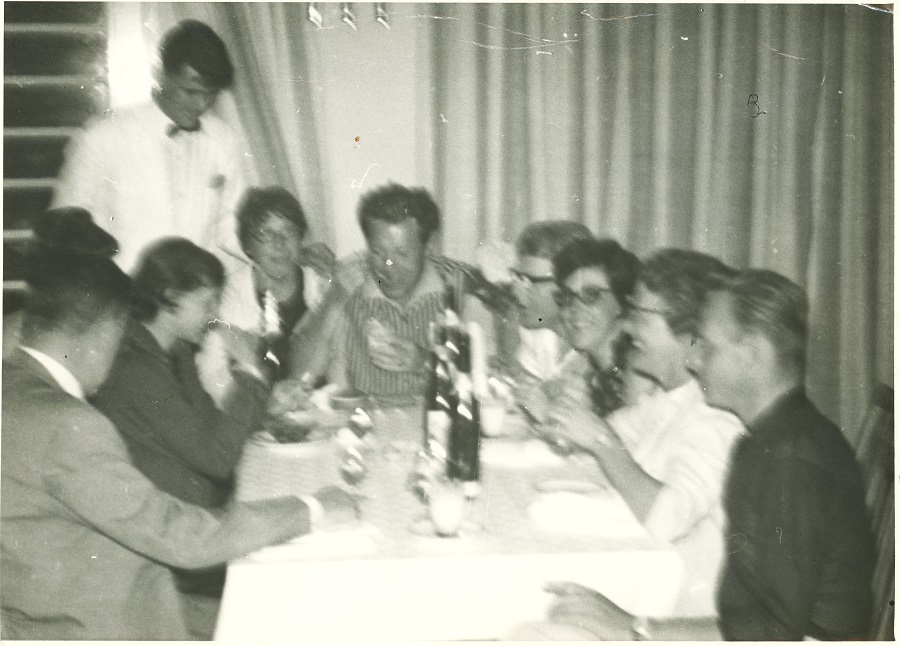
In the past, I took some action to find my father. I wrote a mail to the hotel but got no reaction. Last month I tried to get in contact with someone who could help me. I wrote to The Dubrovnik times (could be an interesting story for them) but Mark Thomas is in England. Other actions didn’t help either so far.
Important is of course his name. That’s somewhat of a mess. He never wrote his name, so I know only the pronunciation from my mother: Gojko Smilonic. I couldn’t find anyone with that name, the best existing names who look like that are and Smiljanić or Smilović. If he’s still alive, he must now be in his eighties. I have a hazy photo of him.
It’s already a short timeframe; we’re coming to Dubrovnik on the 29th of September for two weeks (so I have time to travel). I have no idea if this story and project can be any interesting for Total Croatia News. If not, maybe you can help me with a person or organization I can contact who can.
Greetings,
Anyone with any information, please contact me on This email address is being protected from spambots. You need JavaScript enabled to view it. Subject Dubrovnik waiter
****
What's it like living in Croatia, and where can you get the best survival tips? TCN CEO Paul Bradbury and TCN Editor Lauren Simmonds have teamed up to publish Croatia, a Survival Kit for Foreigners.
Follow Paul Bradbury on LinkedIn.
Looking for a Job in Croatia? This Week's Top 10 from Posao.hr (September 24, 2022)
September 24, 2022 - Looking for a job in Croatia? A new weekly feature on TCN, in partnership with leading job site agency, Posao.hr, who present a selection of weekly job listings.
How hard is it to find a job in Croatia, and what is on offer?
We spoke to Ines Bokan, director of leading jobs site Posao.hr, who kindly took the time for this excellent interview overview.
Ines has kindly agreed to work with us on a new weekly feature on TCN - a weekly selection of 10 job listings, as chosen by Posao.hr. Details and links to the job opportunities below in the latest edition of this feature.
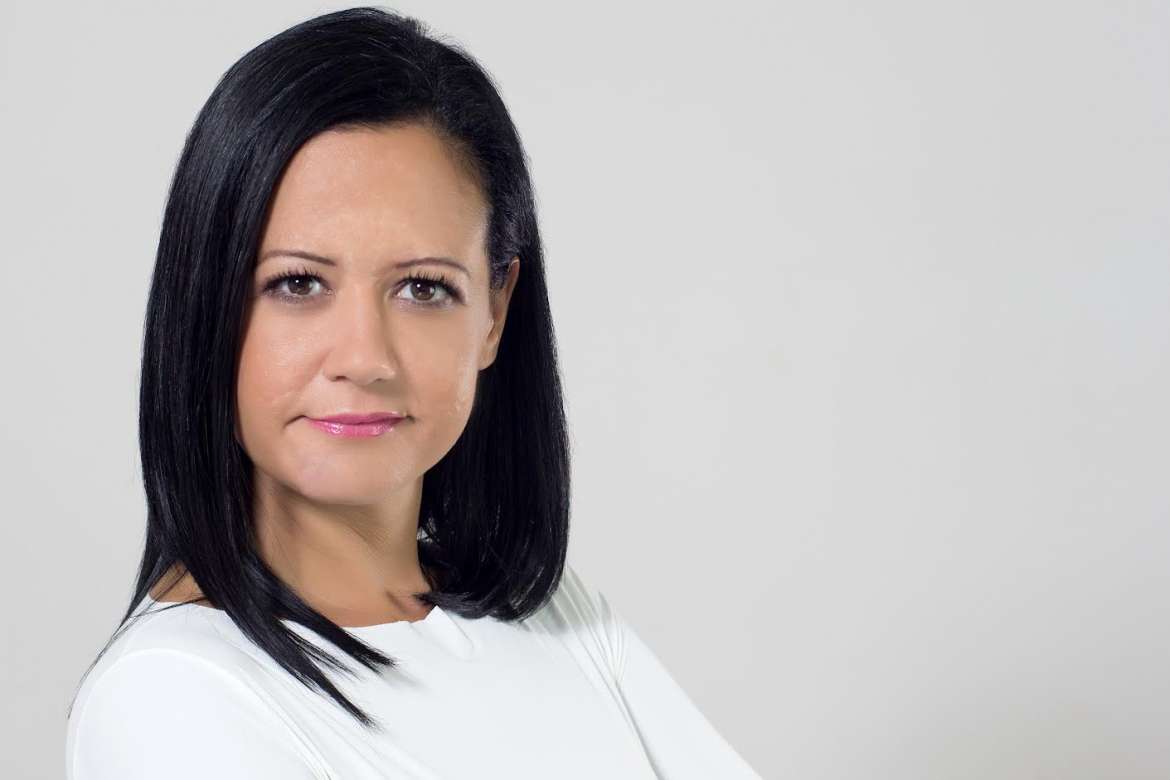
WEEKLY SELECTION OF JOB LISTINGS
Eumetsat is looking for a Contracts Officer (m/f) in Darmastadt, Germany. The company is offering training and development support and full medical coverage for employee and family. Apply by October 22nd via this link.
Mango Moda d.o.o. zapošljava na poziciji Visual Merchandiser (m/f) u Zagrebu. Poslodavac zapošljava kandidata na puno radno vrijeme, nudi popust za zaposlenike i naknadu za prijevoz. Prijaviti se možete klikom na link do 27.09.2022.
Strabag BRVZ d.o.o za usluge is hiring Full-Stack Developer (m/f/d) in Zagreb. They are offering an opportunity to work in a team, the final salary level depends on professional knowledge. Apply by October 16th via link.
Flix Snip is looking for a Social media Manager (m/f) in Zagreb. The company is offering a hybrid remote work.They are looking for a person who is independent, organized, dependable, self-motivated proactive and passionate about the social media and digital marketing space. Candidates can apply by clicking here until Sep 28th.
BrunettiRecruitment d.o.o is looking for a Recruitment of Human Resources (m/f) in Zadar. They are looking for a valid and responsible person with experience regarding the employment of Third Country National workers. Apply by October 20th via link.
Next Step is hiring a National Recruiter (m/f) in Klagenfurt, Austria. If you are bilingual in Italian/English or Italian/German, have great MS Office knowledge and excellent interpersonal skills with good negotiation tactics, this might be a great opportunity for you! Apply via this link until October 16th.
Onjobs Personalagentur GmbH zapošljava Osobu za posredovanje pri zapošljavnaju novih djelatnika (m/ž) u Salzburgu, Austrija. Poslodavac traži osobu sa znanjem njemačkog jezika i nude austrijske ili njemačke ugovore o radu. Poslodavac svim zaposlenicima iz Hrvatske osigurava besplatan smještaj. Prijaviti se možete klikom na link do 01.10.2022.
Falkensteiner Hotels & Residences are looking for Online Marketing Lead Camping Division (m/f), Head of Marketing / Commercial Lead Camping Division (m/f) and Head of Sales MICE & Sports (m/f) in Zadar. They are offering a competitive salary, buddy program, opportunities to help shape the future in a dynamic and open working environment and other benefits. Apply by Sep 26th via link.
Mooie Glimlach d.o.o. is hiring an Assistant with knowledge of French and Dutch (m/f) in Zagreb. If you are fluent in French and Dutch, and English or Croatian, have highly developed communications skills and are highly responsible. The company is offering a part time job or student job for beginning with possibility to start full time in the future. Apply via this link until October 10th.
CCPORTER Sp. z.o.o. is hiring a Sales Advisor with Croatian (m/f). They are offering remote-work, competitive basic salary and attractive bonuses depending on the sales, specialized training and possibility of development within the company’s structures and flexible working hours. Apply by October 23rd via this link!
For more career options and job listings, visit posao.hr.
![]()
These weekly job listings will appear in the weekly TCN newsletter - you can subscribe here.
****
What is it like to live in Croatia? An expat for 20 years, you can follow my series, 20 Ways Croatia Changed Me in 20 Years, starting at the beginning - Business and Dalmatia.
Follow Paul Bradbury on LinkedIn.
Croatia, a Survival Kit for Foreigners will be out by Christmas. If you would like to reserve a copy, email This email address is being protected from spambots. You need JavaScript enabled to view it. Subject 20 Years Book
Croatian Returnee Reflections: Nadia Milevcic, from Buenos Aires to Rijeka
September 24, 2022 - Whisper it quietly, but more and more people are relocating to Croatia from the diaspora. In a new TCN series, we meet them to find out how they are faring and what advice they have for others thinking of making the switch. Next up is Nadia Milevcic, who moved from Buenos Aires to Rijeka.
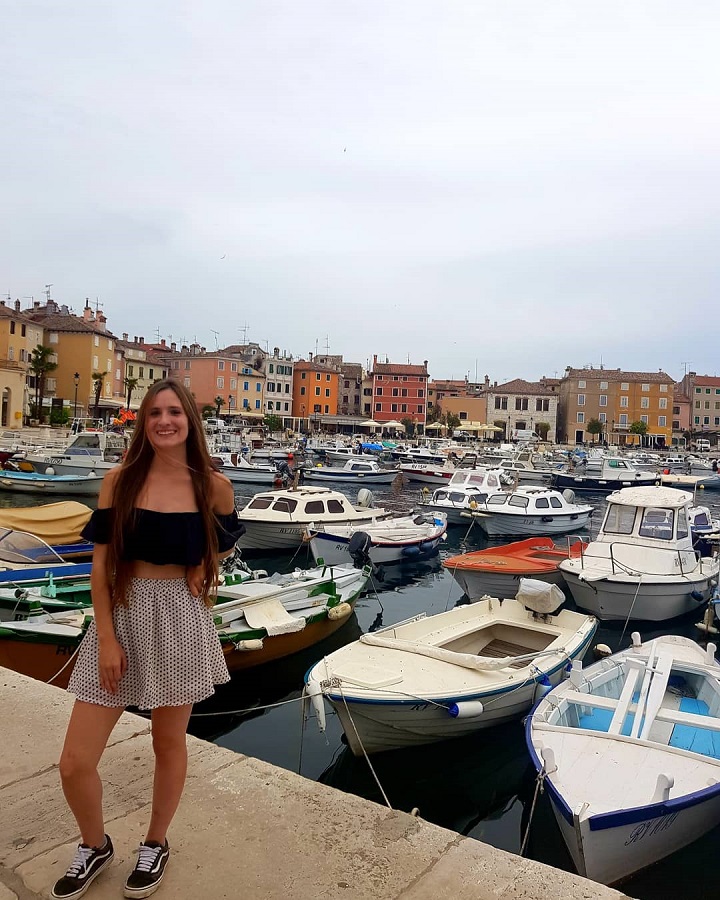
My name is Nadia Milevčić, I was born in Buenos Aires, Argentina, and I am 27 years old. My relationship with Croatia was always very strong because four of my great-grandparents were Croatian and went to Argentina in the 1920s. They did not meet in Croatia but in Argentina, where they made a family. My dad grew up among Croatians, and that tradition came down to my family. Since I was very little, I was aware of my Croatian roots, and that is why I always wanted to come here. In Argentina, I studied literature, and I worked as a high school teacher, but when I won the Croaticum scholarship, I left my job behind and decided to travel to Rijeka. I loved my career and my life in Argentina, but I also felt that something was missing. I wanted to travel and see the world, connect with another culture and live in a place totally different than mine. At first, I was only going to stay for four months to study Croatian, but the outbreak of covid made me change my plans because I couldn't go back to Argentina. I finally spent almost two years in Croatia without going back to my country. At the beginning of this year, I spent three months in Argentina, but I realized that Croatia changed me and that I cannot stay only in one country. I love Argentina, and I will always be from Latin America, but these two years in Croatia marked my heart, and a big piece belongs to it. This country allowed me to feel free, cross limits that I had never imagined, and connect with people from all over the world. I grew up in every way and learned so much that I can't go back. Half of my life is in Argentina, but the other half is in Croatia, and for that reason, I travel every year from one continent to another. I still don't know where I'm going to build my life, but I know very well that I don't want to give up on either of them.
1. You made the switch to Croatia. Tell us a little about the decision process and how long it took for you to get on the plane.
In Buenos Aires, I decided to take classes in Croatian language and culture with my dad and my brother. This was my first meeting with a Croatian person who not only taught us about the language and culture but also told us about the history of his country with a lot of love. It also brought me closer to other descendants of Croatians who also wanted to strengthen their roots and get closer to the culture. In parallel with this process, I began to look for information to obtain citizenship, and for this reason, I went to the embassy. There they told me about the Croaticum, a program for friends and descendants of the Croatian people. At that moment, the possibility of traveling and living for a while in Croatia began to take shape in my head. I was finishing my degree in Buenos Aires, and I thought it was a good time to try it. I applied in May 2018, and they did not give me the scholarship. At the end of the year, my Croatian cousins (whom I did not know) contacted me through Facebook. We quickly established a good connection, and this was a sign to me that I needed to try again. In 2019 I sent my application to study in Rijeka again, and this time they gave it to me. I remember that when I won the scholarship, my heart was overflowing with happiness, but I also had a hard time believing that I was actually going to travel to Croatia. Living in Latin America makes everything complicated from a geographical and economic point of view, and I would be lying if I said that it was easy to get here. If I succeeded, it was also because I received a lot of support and help from my friends and family, who knew that my biggest wish was to come to Croatia.
2. What did your family and community back home think of your decision at the time?
At that time, I had finished my studies in Argentina, and everyone knew that nothing could tie me to the country. From the Croatian lessons, the first unsuccessful scholarship application, and all my visits to the embassy, it was a project that had been in my head for two years. Everyone was happy for me because they knew of the effort and time invested in this idea. Especially, I think it was very important for my dad because I was the first person in our family to visit Croatia and meet our cousins. It was a bridge that we had yet to establish, but the fact that I was going to travel marked a beginning.
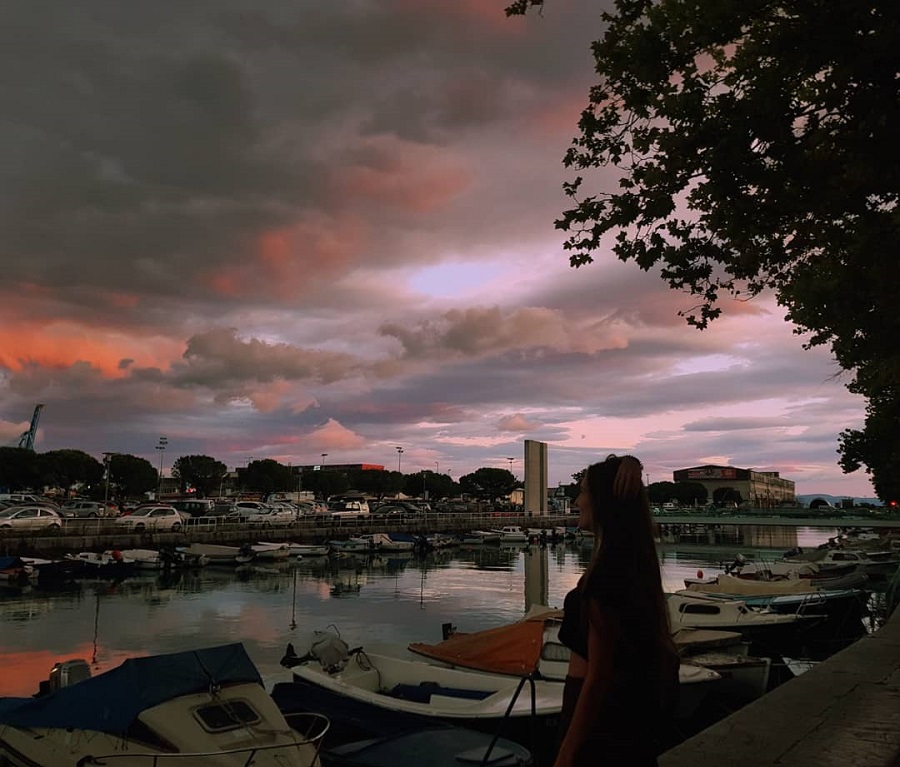
3. Where did you get your information about the realities of Croatia prior to coming?
My Croatian cousins and teacher gave me a good overview of the situation in the country. My grandmother had also traveled to Croatia in the year 2000, and she told us a lot about the country and our family, but I think that no one can prepare you and tell you effectively what you are going to find on the way. Nobody could have told me that a pandemic was coming and that it was going to complicate the process of obtaining citizenship. Or that it would also be difficult to get a job or have to take a semester online because the faculty was closed. No one could have told me that I was going to separate from my new friends so quickly due to quarantine. My first month in Croatia was very hard, and this was completely unexpected. I had to say goodbye to many people and places when I was just starting to get into a routine. I knew that my life in a new place was going to be a challenge, but I never imagined that it would be so hard.
4. What were you most nervous about making the switch? What was your biggest fear, and what was the reality of what you found?
I was scared to find myself alone on a continent and in a country, I didn't know. All this was like starting from zero for me, even though I knew I had a family in Rijeka who could help me and give me support. About the language, the culture, the people, and everything that could happen, I knew from the moment I applied for the scholarship that leaving Argentina meant facing the unknown. When I arrived, I was surprised by how warm my Croatian family was even though we had never seen each other. They picked me up at Zagreb airport and included me in their life as if we had known each other all our lives. This was very important to me, and to this day, I say that I was very lucky.
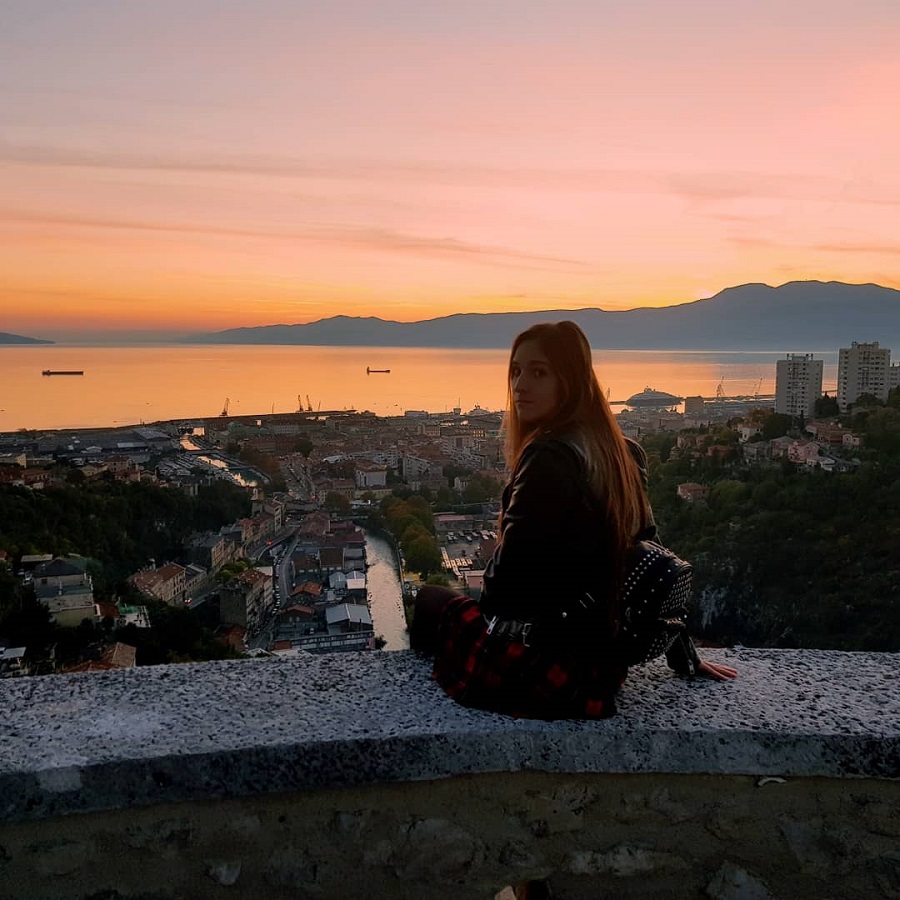
5. Think back to the time before you arrived. What were your perceptions about Croatia, and how were they different from the reality you encountered?
I thought maybe Croatians would not be so friendly to descendants because we weren't born in Croatia. However, I noticed that they were happy every time I explained that my great-grandparents were Croatian and that I was studying the language. Even if my Croatian was not good, they were always willing to help me and teach me. I also noticed that they themselves considered me a Croatian many times when I told them about my family history and the reason for my trip. I also believed that it would be difficult to obtain citizenship and that the police were not going to help me with this process. However, I noticed that they had a lot of consideration when processing the residence and citizenship. The importance given to blood is incredible, and that is why I saw that the workers also had patience and consideration with me. Processing citizenship was difficult in 2020 due to covid. It was difficult to obtain the papers from Argentina and present them in Croatia because the Foreign Ministry did not work in my country. Many papers expired, and my citizenship appointment was delayed. However, they understood, and I finally got citizenship. I honestly had high hopes for the scholarship, but I never believed that they would give me the same status as a Croatian student. On campus, I lived with Croatians, and they also gave me the opportunity to eat in the dining room for very little money. I used the same facilities and paid the same money as my colleagues. The campus is new, and it was a very beautiful experience to live in it for a year. In other words, this program not only allowed me to learn the language but also gave me the opportunity to pay little money for food and accommodation. I think this shows how important the concept of blood is and that the grandchildren of Croats return to the country. I believe that at a social level, descendants are given a very valuable place, and they do not treat us as foreigners.
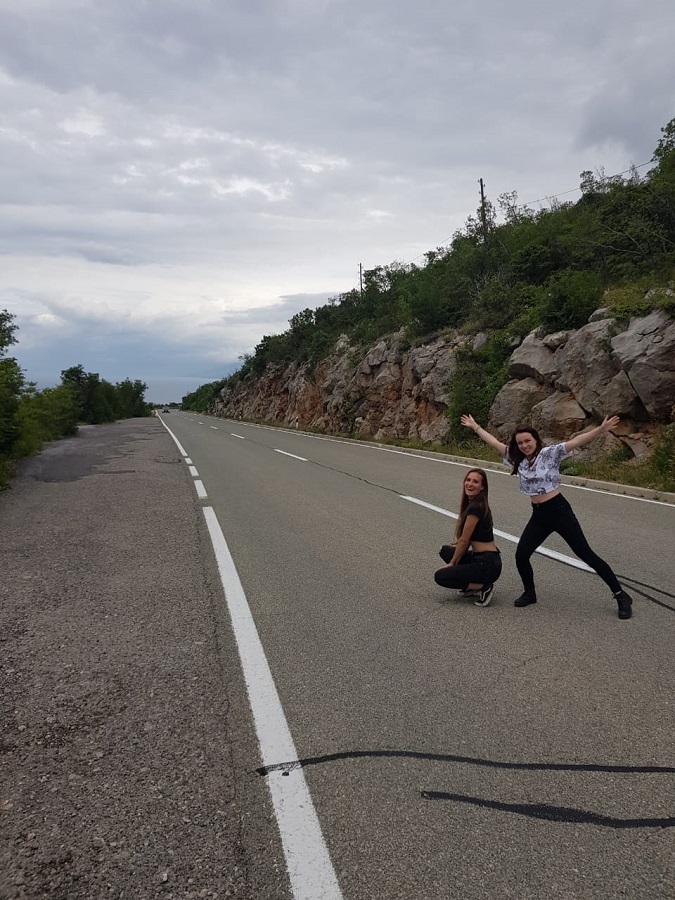
6. You are still here, so obviously, the pros outweigh the cons. Tell us about some of the things that you love about being in Croatia, as well as some of the things you don't like.
Croatia is not only a very beautiful country, but it is also very safe, and there are more job opportunities than in Argentina. It also has good connections with other countries, and many cities are always full of tourists. In Rijeka, there are many international students, and there is a cultural exchange that is very useful and interesting. I love the fact that Croatia brought me closer not only to the locals but also to people from all over Europe, and this opened my mind a lot. It also has a lot of things to do and places to explore; you can always go to a new island, climb a different mountain or visit a beach you have never seen. The country is also very calm; you don't have to deal with an excessive amount of people and traffic like in a big city. In Buenos Aires, I needed maybe three hours to make a trip that should last one. In this country there is no traffic, you can walk quietly down the street or drive without too many problems. I think there are a few things that I don't like. Mainly I think everyone smokes too much, and I can't get used to them doing it indoors. Maybe the rest of the things I don't like are explained by cultural differences, like music or food. I know that this would happen in any country, and they don't seem like a big reason to leave Croatia.
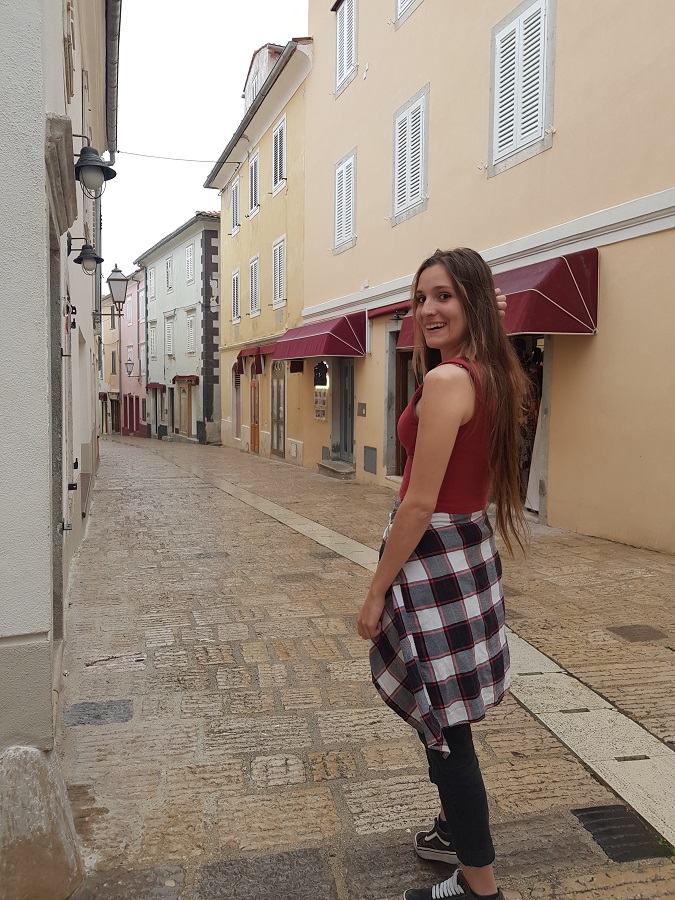
7. What advice do you have for others thinking about making a move from the diaspora?
I would tell them that if they have the desire, they should do it without thinking too much about it. It is normal to be afraid of the unknown and the unexpected, but in the end, they will always be grateful for having put it aside and come. There will be difficulties, but everything can be resolved along the way. I was scared, too, and yes, there were painful situations, but in the end, it was all worth it, and I would do it again from the beginning. Even if I had to relearn the language and start from cero without any friends, I would repeat it. It is not only for knowing the country of our grandparents and living in a beautiful place, but it also implies personal growth that no one can take away from you. I would also advise them to apply for the scholarship and explore Croatia. Whether if they want to live here or just travel, I think it's a first approach to the country and an experience worth having. In this way, they can learn the language and also see what life is like here. I would also tell them not to worry about the language or about coming without citizenship, as the people are kind and patient and will help them as much as they can. If you have Croatian relatives, look for them! For them, it is very important to know what happened to the grandchildren of their relatives, and they are going to receive them with tears in their eyes.
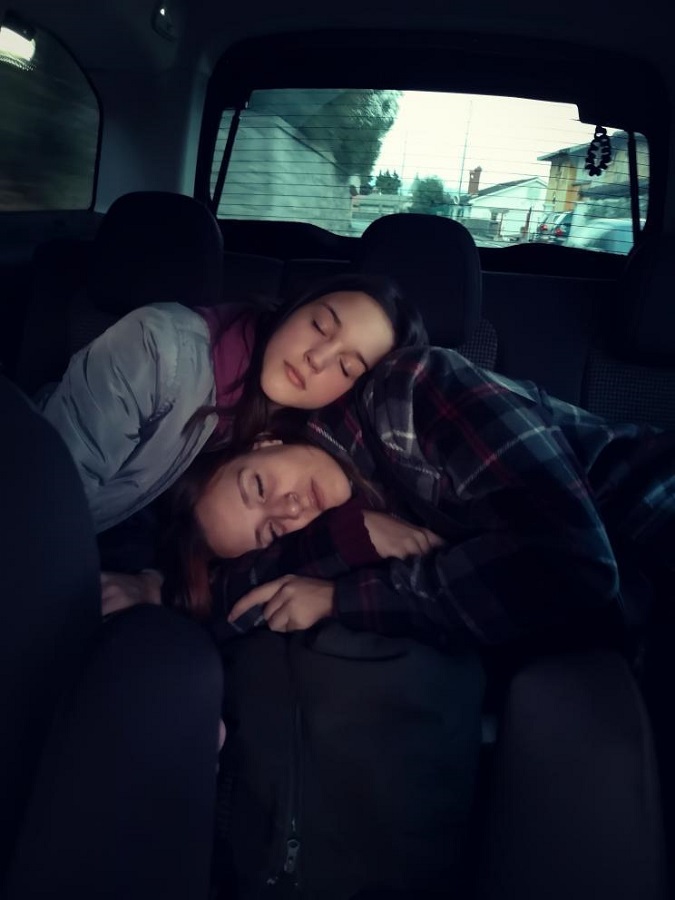
8. How do you think Croatia can better assist those who are looking to return to the Homeland?
I think Croatia is doing very well through the Scholarship program and the state office for Croats. However, I think that perhaps it could improve job placement since it is often difficult to find a job because you do not know where to look. The information inside and outside of Croatia could also be extended a little more since it is often necessary to ask about issues such as citizenship, residence, scholarship, etc., and the information is not so clear and accessible. There is not much promotion of the scholarship in Latin America, and many people do not know that this exists. They also do not know what papers are needed for citizenship and how it is processed within Croatia. To obtain this information, I had to ask many times and go to different offices, in addition to talking to my classmates.
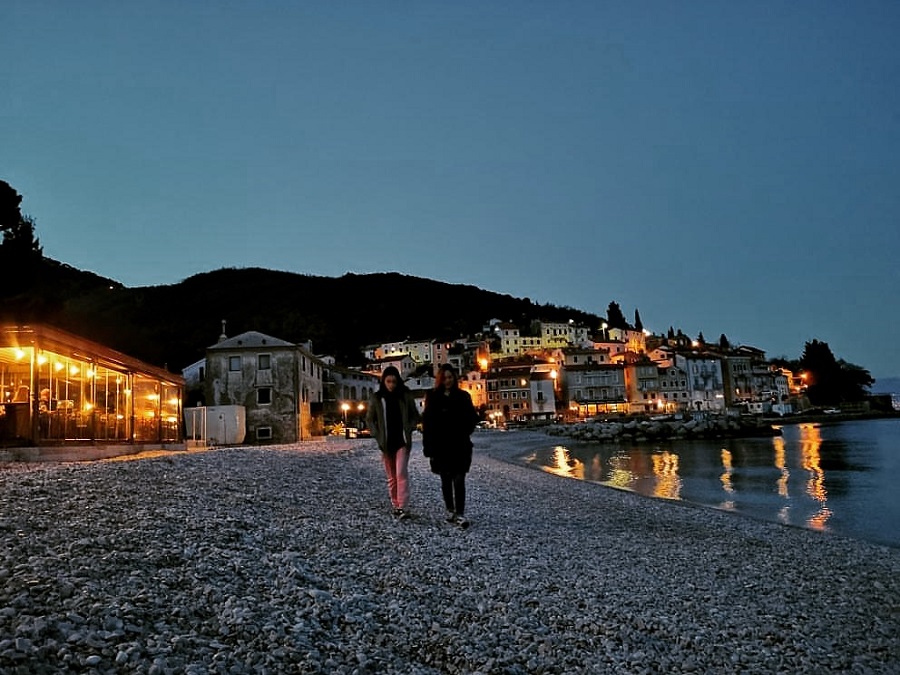
****
Thanks Nadia!
You can follow more stories in the Croatian Returnee Reflections series in our dedicated TCN section.
Would you like your returnee story - positive or negative - to be featured in this series? Contact This email address is being protected from spambots. You need JavaScript enabled to view it. Subject Returnee.
****
What is it like to live in Croatia? An expat for 20 years, you can follow my series, 20 Ways Croatia Changed Me in 20 Years, starting at the beginning - Business and Dalmatia.
Follow Paul Bradbury on LinkedIn.
Croatia, a Survival Kit for Foreigners will be out by Christmas. If you would like to reserve a copy, email This email address is being protected from spambots. You need JavaScript enabled to view it. Subject 20 Years Book
Meet Vukovar 365, Full of Life - Karla of Karla's Arts
September 24, 2022 - Autumn is on the doorstep; the leaves are crunchy, and the air is crisp. Vukovar is still full of life. Not that it matters which season it is. The new generation that breathes life into the city is agile, resilient, and adaptable. They create digitally and remotely; they take inspiration from the world around them but do not fear stepping out of it and finding creativity or letting creativity find them at every step. The digital era has made it significantly easier to make progress and expand. Today, meet Karla. She draws.
Tell us about Karlas Arts, what do you do?
I'm Karla Fehir, on Instagram as @karlas.arts; I'm 21 years old, a computer science student, and I do digital drawing. I've loved drawing since kindergarten, but it wasn't until 2018 that I became more serious about digital illustrations.
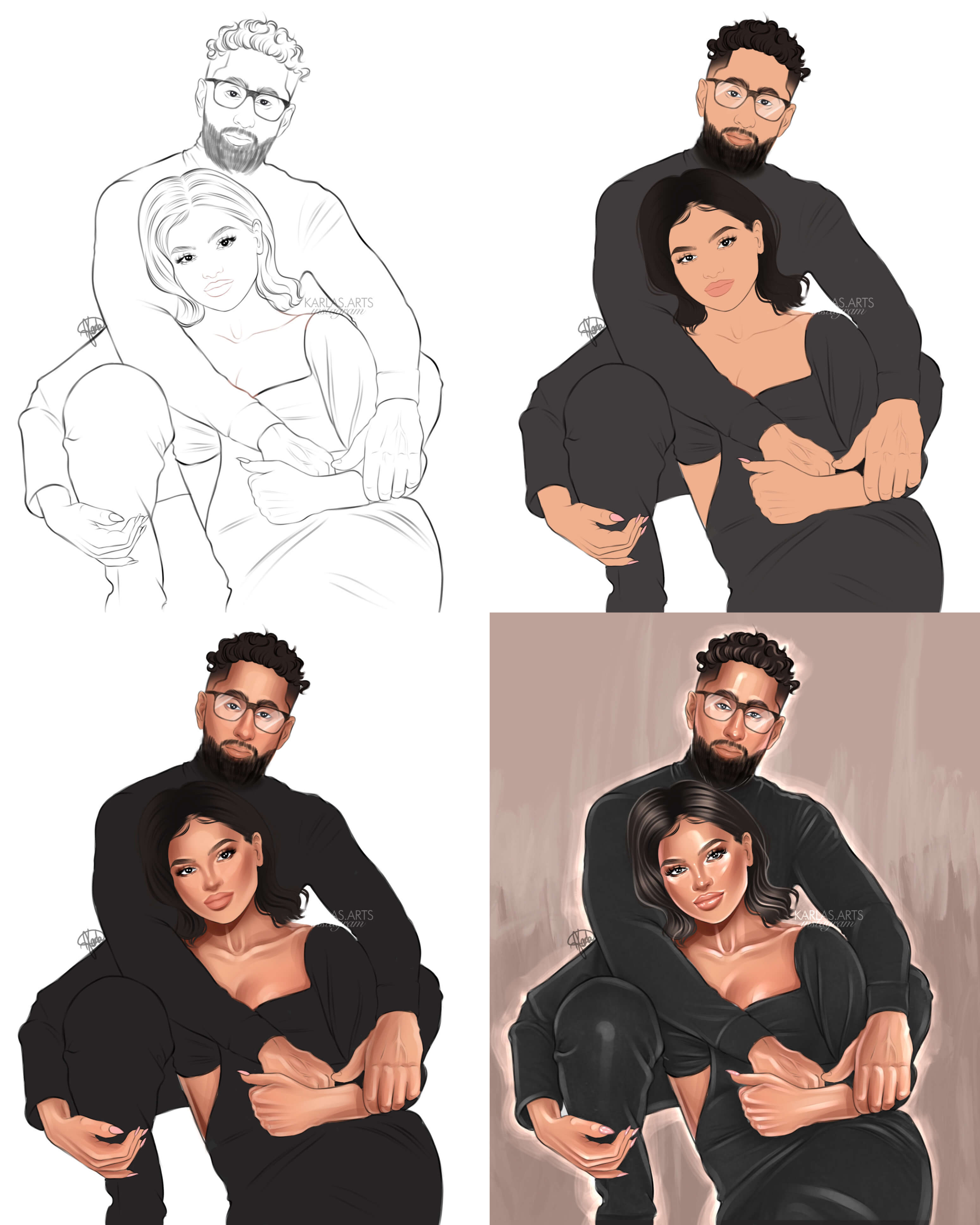
How and when did you start, and where did the inspiration come from?
When I was little, I watched my mom draw, and that inspired me to start mainly drawing cartoon characters. At school, I always drew in my notebooks; it was just a hobby and something I enjoyed. But after a while, I stopped until 2016, when I came across several profiles of artists engaged in digital art on Instagram. I fell in love with the digital style and started drawing using Photoshop on my laptop. On paper, my favorite was the realistic black-and-white style, while on digital media, I prefer the "cartoon" style. The combination of these two styles led to a semi-realistic style that is now my favourite. Two years ago, I started using the iPad as my primary medium for drawing, which drastically affected the progress, drawing speed, and appearance of the illustrations.

What was it like to start such a business in Vukovar? What were the main challenges?
It took a long time to find my style and clients who were interested. I didn't have a client for the first 2-3 years until I began to take the potential of digital illustrations more seriously. The key was daily practice and finding my style. I tend to be a perfectionist and found myself in many blocks where I could not progress, but I continued until I was satisfied with the final look of my illustrations. Eventually, I found my voice in the Beauty Logo area. My clients are mostly young female entrepreneurs from the USA and Canada. After the first client advertised my work on her profile, other clients from the same area started coming. And that's how things developed. One of the biggest challenges of drawing was the cost of materials; that's why I switched to a digital medium where all the colours, brushes, and backgrounds for drawing are readily available. These days I enjoy drawing with pencil and watercolours, which is something I would like to devote more time to and improve.

Does the fact that you are in the east of Croatia affect your work and art?
Initially, I thought it would have an impact, but since we live in the era of social media and online payments, we can reach clients from any part of the world. I have had a lot of clients from Croatia, but it still took place online. The final product is an illustration that can be printed on any medium, and I give my clients the freedom to use that drawing.
Are you satisfied with how your business is developing? What is the outlook for the future?
At the moment, I am satisfied with the progress, although, at some points, I have not been as active as I planned, which has a lot to do with finding clients. But I believe that in the future, it will be even better; I am planning different projects and to one day combine my professional work with digital illustrations.

What opportunities are there in our city and region?
I believe that it is much easier to "breakthrough" in our city than in bigger places due to the smaller population and fewer people who are engaged in art on a serious level. But on Instagram, it is much more difficult to gather an audience on a global level, as in every field of illustration and art, thousands of artists see each other as competition.
Are you connected with other artists in town? What's the scene like?
I am connected with several artists from our area who are also engaged in digital drawing. We share illustration tips and techniques. Each person I meet has their unique style, illustration look, and specific client group. The relationship is friendly, and we do not see each other as "competition" as one might expect.

Finally, tell us about life in Vukovar. What do you like most? What would you say to potential visitors?
Vukovar is the city where I grew up, and it will remain in my heart forever, even though my career and education temporarily moved to Osijek. When I have time, I like to walk along the promenade along the Danube or cycle to Adica, and during the summer, I also go to Vukovar Ada. Vukovar is a small town, but it has many attractions and ways to spend quality time.
For more, make sure to check out our dedicated Lifestyle section.
Large Number of Sharks Live in Croatian Adriatic, Experts Reveal More
September the 24th, 2022 - There are a surprising number of sharks living in the Croatian Adriatic Sea, and while they don't bother people, the occasional sighting for a lucky few is always an incredible experience, especially if it's captured on video.
As Poslovni Dnevnik writes, although the main summer tourist season has now ended, the news that there are a large number of marine predators living quite peacefully in the vicinity caused a wave of disbelief among tourists in Croatia, as Metropolitan writes, as reported by City magazine.
Dozens of different species of sharks live in the Croatian Adriatic, going about their daily business and bothering nobody, despite the sheer amount of people in the sea during the hot summer months. Research by a Croatian-Slovenian team showed that more than half of these sharks are unfortunately at risk. They are mainly threatened by fishing, as they often become entangled in nets and die. Although hundreds of sharks can be found in Croatian Adriatic, they are very rarely seen because they usually stay away from crowded beaches and human activity. However, a group of sharks has been spending time near Split's largest beach over more recent weeks.
"There's a group of sharks here that came here to mate, and we estimate that there were between 200 and 300 of them here in August," Croatian researcher and lecturer Alen Soldo explained to Dnevnik.hr, adding that people rarely notice them because they usually swim in deeper waters and keep themselves to themselves.
Most of them are harmless species of sharks reaching about a metre and a half in size only. Soldo explained that from time to time, more dangerous species of sharks do enter and spend periods of time living in Croatian waters, but, according to him, this is quite rare.
The last fatal shark attack to take place in Croatia was recorded back during the seventies in Lokva Rogoznica. Soldo believes that the person who tragically lost their life was attacked by a large Great White Shark (Carcharodon carcharias).
Fourteen years ago in Croatia, Slovenian national Damijan Pesko was also attacked by a shark, but he luckily survived. In conversation with Metropolitan, he said that Professor Soldo analysed the teeth of the shark, and it was likely one which weighed in at around one tonne.
For more, make sure to check out our dedicated lifestyle section.
Croatian Mandarin Harvest Begins - Yield Low, Producers Unhappy
September the 24th, 2022 - The Croatian mandarin harvest finally began this past week, with many people's favourite fruit now being distributed for sale. Owing to poor and unusually harsh conditions this year, the yield isn't as good as it has been in the past, and producers aren't too satisfied.
As Poslovni Dnevnik writes, the Croatian mandarin harvest finally began this week and the fruit that has been picked is currently being distributed to the market, ready to be purchased by people who wait all year for this. Producers are primarily giving their fruit to purchasing centres, but many are also still selling them at traditional stands. The drought this year has affected just about everything, from olives to grapes, and mandarins are no exception. Producers cite price increases as the biggest thorn in their side, as reported by HRT.
"I have stands which are located far away, I'm talking 500-600 kilometres away, imagine the the cost of all that! That's ultimately going to see me have to raise the prices," said Ante Dugandzic from Komin.
The purchase price is currently 4.20 kuna, and the producers agree that this is now too little for a first-class product. "We were expecting around 5 kuna, but now everything depends on whether that price will last, so if it lasts for about fifteen days, then it won't be bad," said Niko Kapovic from Opuzen.
A general sense of dissatisfaction isn't only being found in regard to pricing, but also because of this year's smaller Croatian mandarin harvest. "There is twenty percent less this year than we had last year. My expectation is somewhere around 30,000 tonnes,'' said Neven Mataga, also from Opuzen.
This year's mandarins are of very high quality, which is ultimately what interests customers the most. Pickers mostly come from neighbouring Bosnia and Herzegovina, and they're picking for about eight hours a day.
"We harvest somewhere around 30 tonnes a day. At this rate, it should take about fifty days if the weather is good, and if it isn't, we will have to wait until Christmas to harvest the rest of the mandarins, as we did last year," explained Ivan Bjelis of Agro Neretva.
Up to 20,000 tonnes of that amount should be placed and sold here on the domestic market, and the rest will be exported elsewhere.
For more, make sure to check out our dedicated lifestyle section.
Promo Prices for Virovitica-Podravina County Cultural Attractions Next Week
September the 24th, 2022 - There are promotional prices on offer for those wanting to pay a visit to various Virovitica-Podravina County attractions next week, with entrance fees for all sorts of historical and cultural sites totalling a mere 20 percent of their usual costs.
As Poslovni Dnevnik writes, the gorgeous Jankovic Castle in Suhopolje is worth paying a visit for not only the beautiful architecture but all of the stories this location boasts, such as the story of the noble family which once lived there. Historical gossip such as why Ilka Jankovic refused to allow her husband, Count Elemir, into the matrimonial bedroom for a while might also be of interest.
You may also be interested in the Drava story (Dravska prica) in Noskovci, where, among other things, there is a rehabilitation and recovery centre for white storks, and you can also get to see what the beautiful Papuk Nature Park looked like back during the age of the Carboniferous swamps.
The Croatian coast might get all the attention, and Zagreb is now getting a lot too, but the rest of the continental part of the country, including Virovitica-Podravina County, is often overlooked. It's perhaps best to say that it is very wrongly overlooked as this part of the country is just as full of history and culture as the coast. In the period from September the 26th to October the 2nd, tickets for all attractions of cultural, historical and natural heritage in the county will come at a cost of just 20 percent of their usual entry/ticket prices.
"On the occasion of celebrating World Tourism Day on September the 27th, the Virovitica-Podravina County Tourist Board is providing all visitors with an 80 percent discount on tickets for museums and visitor centres in the county's wider area," said Martina Jakelic, the director of the Virovitica-Podravina County Tourist Board.
For more, make sure to check out our dedicated travel section.


